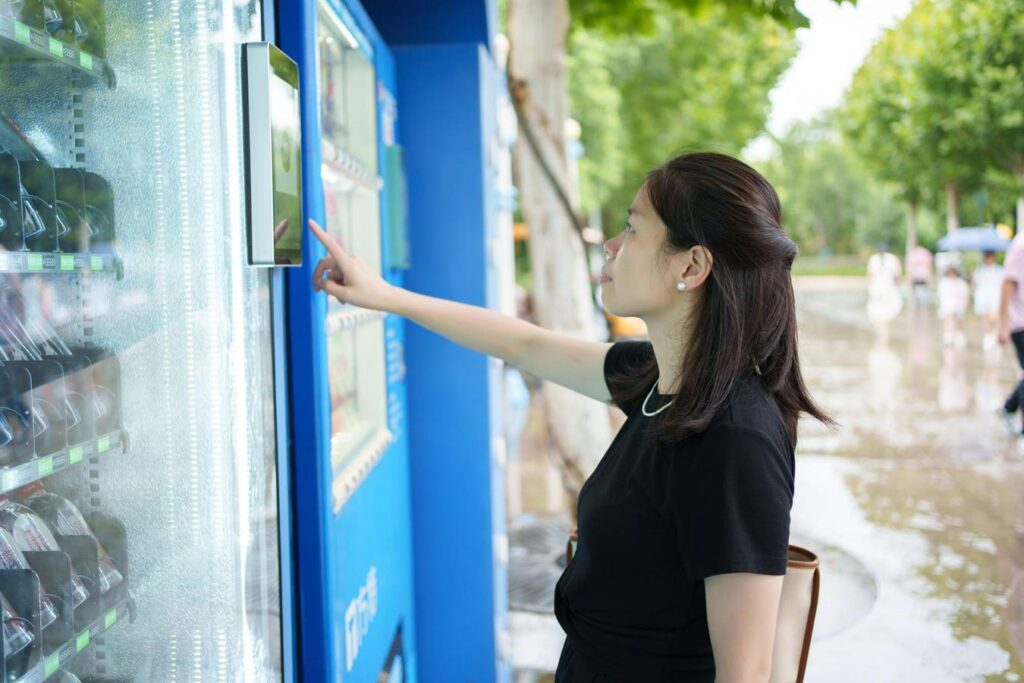Aslak de Silva, CEO of Selfly Store, works with customers in 20+ countries generating revenue with data and intelligent vending machines.
As technology continues to change retail, vending machines have transformed from basic snack dispensers into advanced automated retail solutions. This evolution has introduced new terminology that can sometimes be confusing, with terms like “smart vending machine” and “intelligent vending machine” often used interchangeably.
However, while they share similarities, they also represent different levels of technological sophistication. As CEO, I’ve led the development of both smart and intelligent vending machines, serving customers in over 20 countries. Here’s what you need to know about these machines.
Smart Vending Machines
A smart vending machine is a step beyond the traditional model, integrating modern hardware and software to enhance its functionality. These machines typically feature:
• Interactive screens and touchscreens: These screens provide a user-friendly interface, allowing customers to browse products, view promotions and complete transactions with ease.
• Contactless payment options: Smart machines offer a variety of payment methods, including credit cards, mobile payments and digital wallets, ensuring quick and secure transactions.
• Cloud services: Cloud connectivity allows for remote management and monitoring of inventory, sales data, dynamic pricing and machine status. This capability enables merchants to maximize sales and ensure that the machine is always operational and well-stocked.
Smart vending machines focus on improving convenience, user experience and operational efficiency through the integration of these advanced features. They represent a significant leap forward from traditional vending machines by offering more modern conveniences, but their “smartness” is often limited to the capabilities of the hardware and software they include.
Intelligent Vending Machines
Intelligent vending machines take the concept of “smart” a step further by incorporating data analytics, AI and advanced sales functionalities. The intelligence of these machines lies not just in their ability to perform tasks but in their capacity to process and utilize data to make informed decisions and optimize outcomes. Key features include:
• Item-level detection: Modern AI systems can train cameras to quickly and accurately recognize new items, ensuring that inventory is tracked at a granular level and reducing the chances of errors or misplacement.
• AI-powered recommendations: Intelligent machines collect and analyze data in real time to provide insights into product assortment, pricing strategies and customer preferences, enabling more personalized and effective merchandising.
• Predictive maintenance: These machines monitor their own condition to predict when maintenance is needed, reducing downtime and ensuring consistent operation.
• Personalized customer interactions: By leveraging data, intelligent machines can offer tailored experiences, suggesting products or promotions based on individual customer preferences.
• Optimized inventory management: Using continuous data analysis, intelligent machines ensure the right products are available at the right time, minimizing waste and maximizing sales opportunities.
• Dynamic pricing and promotions: Intelligent machines can adjust prices in real time based on demand, time of day or other factors, allowing for more responsive and profitable retail strategies.
Intelligent vending machines go beyond merely having advanced hardware features; they actively learn, adapt and optimize their operations based on the data they collect, offering a more dynamic and responsive retail experience.
Making The Right Choice For Your Business
When deciding between smart and intelligent vending machines for your business, start by assessing your specific needs and objectives. Think about the type of products you offer, your target customers and how much operational control you want over the vending process.
If your goal is to offer a simple yet modern retail experience with features like contactless payments, touchscreen interfaces and remote monitoring, a smart vending machine may be sufficient. However, if your business relies heavily on data to make decisions—whether for inventory management, personalized customer experiences or dynamic pricing—an intelligent vending machine might be the better fit.
One of the key questions to ask is: How much data do you need to optimize your operations? Intelligent vending machines excel when it comes to data-driven decision making. If you want real-time insights into customer preferences, predictive maintenance and automated inventory management, the additional cost and complexity of an intelligent machine will likely be worth it.
On the other hand, if your business operates in a location with consistent customer demand and a straightforward product assortment, a smart vending machine may provide enough convenience without the added layers of complexity.
You’ll also want to consider the location and customer base when making your choice. High-traffic areas or tech-savvy customer bases might appreciate the advanced features of intelligent vending machines, especially those that offer personalized experiences or dynamic promotions.
However, if your location is more focused on convenience and quick purchases, the simplicity of a smart machine could be more effective. Ask yourself: Does your customer base value personalized shopping experiences, or do they prioritize quick, seamless transactions?
That said, both options come with their own set of challenges. For smart vending machines, the challenge is typically around keeping up with restocking and managing remote operations efficiently. For intelligent machines, the challenge often lies in the initial setup, data integration and ensuring the machine’s AI-driven functionalities are fully utilized.
To overcome these challenges, it’s important to work with a trusted provider who offers robust support during the implementation phase. Additionally, ensuring your team understands the technology and how to manage it is essential for long-term success
As the industry continues to evolve, understanding the differences between smart and intelligent vending machines will be key in making informed decisions that align with your business goals and customer expectations.
Forbes Business Council is the foremost growth and networking organization for business owners and leaders. Do I qualify?
Read the full article here











